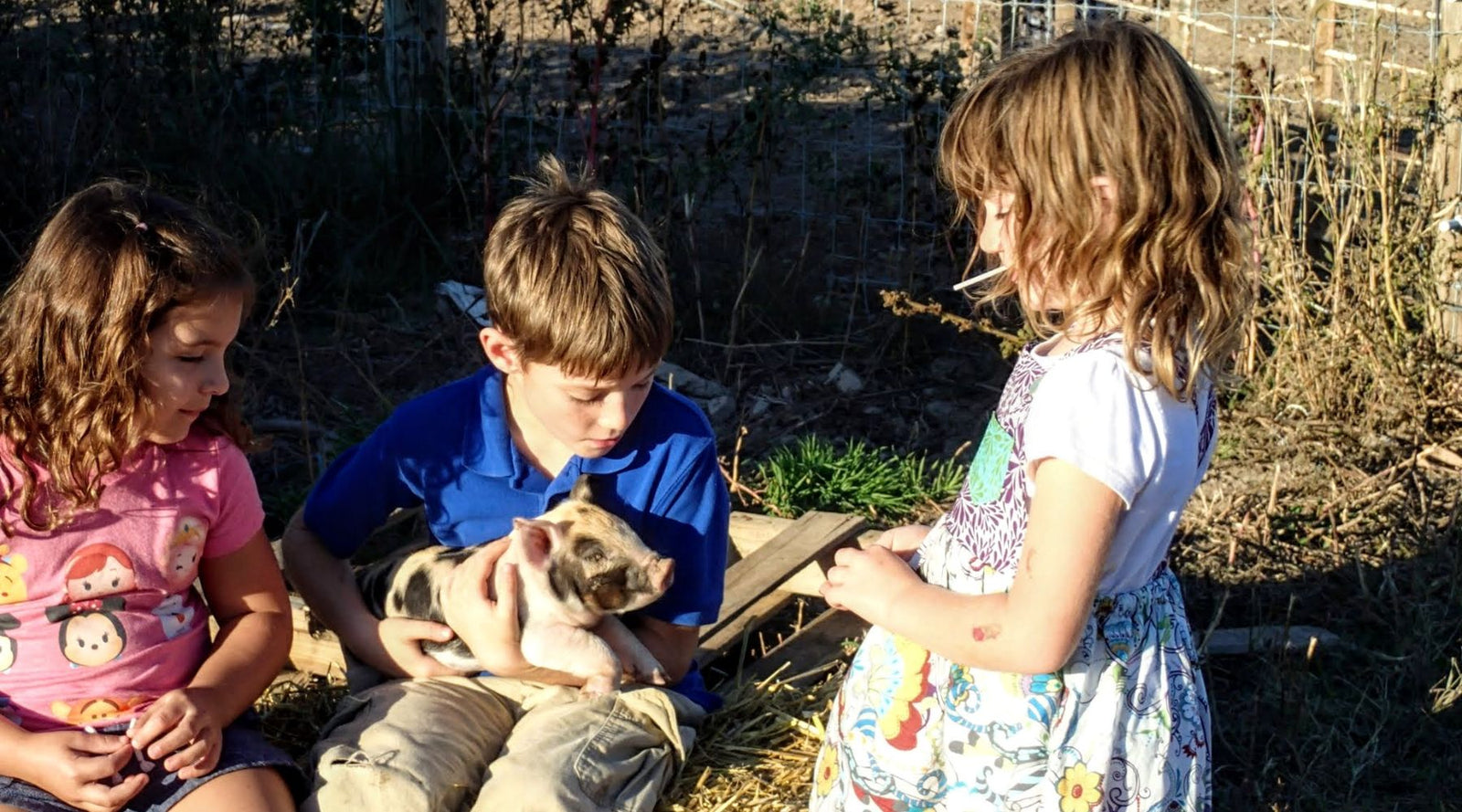Your Cart is Empty
we ship from colorado to maine

This is the second in a 3-part series on pastured pork. To read the first article, click/tap here: Being a Conscientious Omnivore.
If you are anything like us, maybe you have more time to listen to things than read, because you can multitask while you are cooking, driving, and busying around.
Here is an eye-opening interview that you can read or listen to on the Splendid Table with Barry Estabrook, food journalist and author of Pig Tales: An Omnivore’s Quest for Sustainable Meat. This interview explains a lot of unique aspects of pork production, including the serious negative health, environment, and society issues of conventional pork production, which is how 97% of pork is raised in this country.
I listened to it, and heard a lot of stuff that I didn’t know (Christopher Columbus brought pigs on his second voyage to feed the crew when they arrived!). This is a quick listen with some fascinating facts about the history of raising pigs and the actual conditions today in giant conventional pork warehouses. I will warn you that there is a section of this interview that is descriptive and rather disturbing. However, it is not in your face, like seeing graphic images or videos.
The interview and the book have a happy ending of the positive “other side” of pork production: pasture-raised pigs.
Estabrook says, “Ten years ago it was very difficult to find this meat, but increasingly it's getting much easier. You can find it at most farmers markets. Large national companies such as Niman Ranch distribute pork that's raised in this way.”
You guys - if you are currently buying pasture-raised pork from a trusted source or another local farmer, keep on doing what works for you! But if you are currently eating conventional pork, please consider what it is that you are buying into.

We don’t have a lot of control, at the end of the day, about a lot of the problems in our world. However, we do have control over what we spend our money on and what we eat. You can vote every day with your dollar and your fork.
Vote for health and well-being for our farmers, farm animals, society, and environment.
Comments will be approved before showing up.